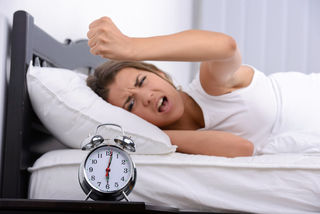Sleep
Gen Z Is in Serious Debt, but This Time It’s Not Financial
If sleep had a credit score, Gen Z’s rating would be “poor.”
Posted February 21, 2020 Reviewed by Davia Sills

U.S. student debt has just hit 1.5 trillion dollars; though staggering, is there another kind of debt that should be getting more attention? Over the past decade, scientific studies have shown that younger generations continue to exhibit a steady and continual decline in sleep duration and quality.
One 2014 study analyzed approximately 28,000 8th, 10th, and 12th graders from Fairfax County, Virginia. In their study, students reported on average 6.5 hours of sleep per school night, with only 3 percent reporting that they received the recommended 9 hours per night. Moreover, a 2016 review found that teens gradually lose sleep every year. Specifically, the study indicated that teens lost about 90 minutes of sleep each school night from about ages of 11-12 to about 17-18.
Simply put, Gen Z has been accruing astronomical amounts of sleep debt for years. Sleep debt, otherwise known as sleep loss, occurs when an individual fails to attain the recommended number of hours of sleep for his or her age. For example, the recommended minimum number of hours of sleep for adolescents is 9. If a teen were only to sleep five hours per night Monday through Friday, by Saturday, he or she would already be in 20 hours of sleep “debt.”
This is often the reason we see tweens, teens, and young adults “crash” or sleep for 10 or more hours on the weekends. It’s the proverbial sleep creditor attempting to collect “interest” on those in sleep arrears. However, “crashing” is not an effective way to “catch up” on the accumulated debt. One recent U.S. study demonstrated that it takes four days to compensate for every one hour lost.

Common Culprits of Gen Z Sleep Loss
Sleep is essential for optimal cognitive functioning, but more importantly, for survival. So why isn’t it treated as such? Research suggests that it isn’t that teens don’t value sleep; there are biopsychosocial influences that play a major role in sleep loss. For example, delays in adolescent circadian rhythms, early rise times on school mornings, peer victimization, technology use, academic pressure, and being overcommitted can all be underlying factors for sleep deprivation.
- Circadian Rhythm
Circadian rhythm is the biological process that regulates the sleep-wake cycle. A review in 2010 found that biological changes associated with natural maturation can cause delays in circadian rhythm timing, consequently causing adolescents to be more inclined toward later bedtimes. Unfortunately, most school start times are not sympathetic to the biological shift of adolescent sleep patterns, contributing further to sleep deprivation.
- Peer Problems
More recently, peer victimization has shown up on sleep loss radar as well. In the U.S., 20 percent of students ages 12-18 have been bullied during the school year, according to the National Center for Education Statistics. A 2019 study analyzed sleep patterns of fifth and sixth graders throughout the span of a year. They found that youth self-reports of peer victimization were linked to lower levels of sleep quality.
- Cell Phone Use
If you ask parents of tweens, teens, or young adults, one of their foremost complaints is the amount of time their child spends on their phone—and for good reason. Instagram, Snap Chat, YouTube, and TikTok have become American household names within a few short years. Blue light, commonly emitted from electronics and screens, has been scientifically proven to simulate sunlight, therefore activating a part of our brain called the suprachiasmatic nucleus, the portion of the brain associated with sleep-wake cycles in our circadian rhythms. When activated, the suprachiasmatic nucleus releases cortisol, a stress hormone, which signals our bodies to become more alert or even “wake up.” Scrolling through social media before bedtime is a common culprit of sleep disruption.
- Overscheduled and Overcommitted
In modern society, tweens, teens, and young adults are often involved in multiple teams, extracurricular activities, music lessons, clubs, religious rites of passage, volunteering opportunities, or even jobs. It’s becoming increasingly common for youths to be overcommitted, leaving little time to complete homework after school, let alone practice good sleep hygiene.
- Academic Pressure
Homework, exams, midterms, finals, standardized tests, AP classes, ACTs, SATs, Honor roll, Deans list, parental expectations. It’s overwhelming just typing out the words. The pressure from parents and to keep up with peers has fed a vicious cycle of relentless competition in U.S. schools, whether it be middle school, high school, or college. The constant stress and expectation to succeed and achieve have become intolerable and unmanageable for an ever-growing number of Gen Zers.
The Cost of Sleep Debt
Sleep deprivation is linked to hopelessness, substance use, depression, anxiety, and suicidality in teens. The Fairfax study indicated that getting just one hour less of weekday sleep was associated with significantly greater odds of feeling hopeless, seriously considering suicide, suicide attempts, and substance use.
Similarly, one 2018 study found that the risk of having a suicide plan decreased by 11 percent for every one-hour increase in sleep duration. The researchers went on to assert that screening for sleep disorders could act as a potential measurable indicator in suicide prevention strategies.
In addition, if sleep deprivation is prolonged, the Columbia University Department of Neurology and the American Institute for Stress state that individuals are more susceptible to the following:
- Increased risk for depression and other mental illness
- Increased risk for heart disease and asthma attack
- Increased risk for potentially life-threatening complications, such as car accidents, and untreated sleep disorders, like insomnia, sleep apnea, and narcolepsy
- Hallucinations
- Severe mood swings
- Increased risk of Type 2 Diabetes
- Increased levels of stress hormones
- Raised levels of inflammation
- Anxiety
- Weight gain
- Increased sensitivity to pain
Common symptoms of sleep deprivation from Medical News Today:
- Yawning
- Moodiness
- Fatigue
- Irritability
- Depressed mood
- Difficulty learning new concepts
- Forgetfulness
- Inability to concentrate or a “fuzzy” head
- Lack of motivation
- Clumsiness
- Increased appetite and carbohydrate cravings
- Impaired judgment
How to Combat Sleep Deprivation
The CDC and Sleep Education recommend several tips for better sleep.
- Be consistent with bedtimes. Go to sleep at the same time each night and get up at the same time each morning, including on the weekends. At a bare minimum, get seven hours of sleep each night.
- Make sure your bedroom is quiet, dark, relaxing, and at a comfortable temperature. Temperatures between 60 and 67 degrees Fahrenheit are ideal.
- Remove electronic devices, such as TVs, computers, tablets, and smartphones, from the bedroom at least 30 minutes prior to bedtime
- Avoid large meals, caffeine, and alcohol before bedtime
- Get some exercise. Being physically active during the day can help you fall asleep more easily at night.
- Use your bed only for sleep; do not do schoolwork in bed.
- Reduce your fluid intake before bedtime




